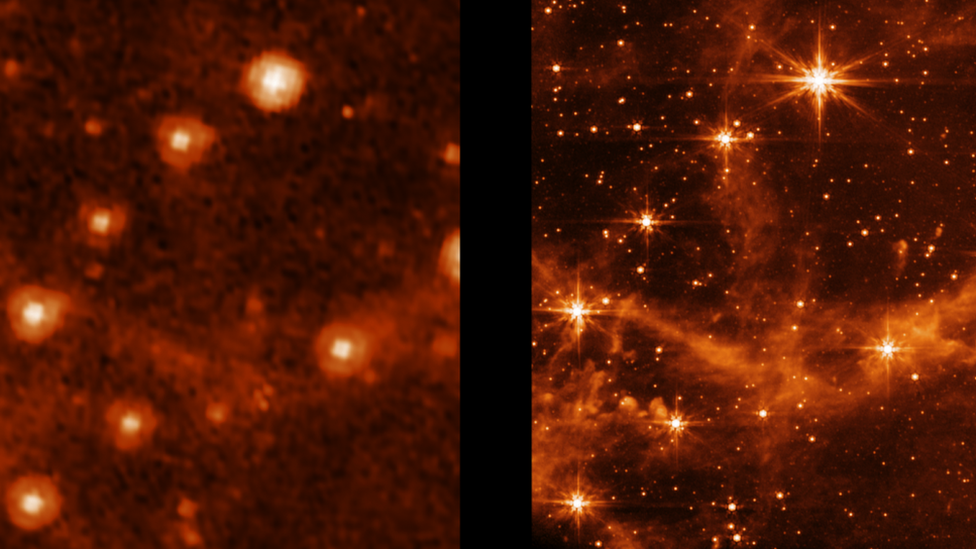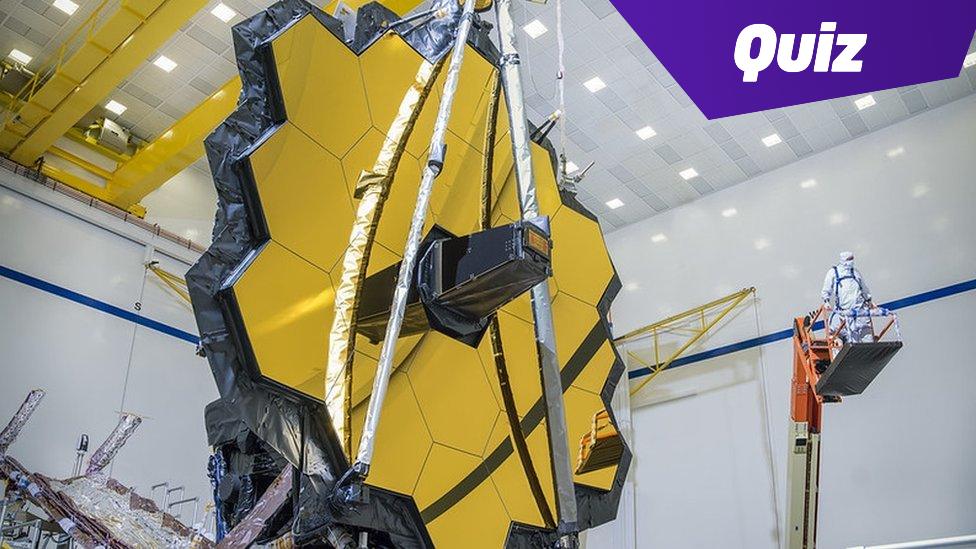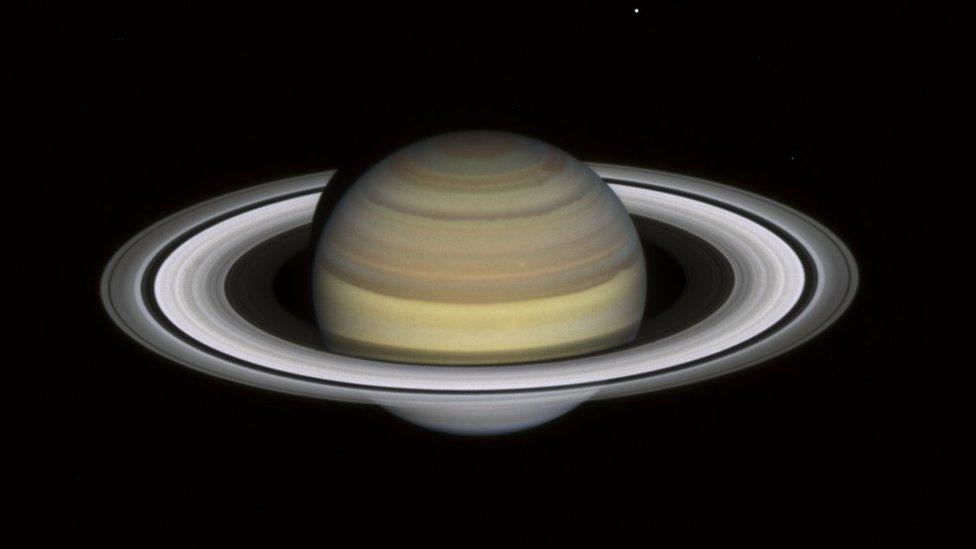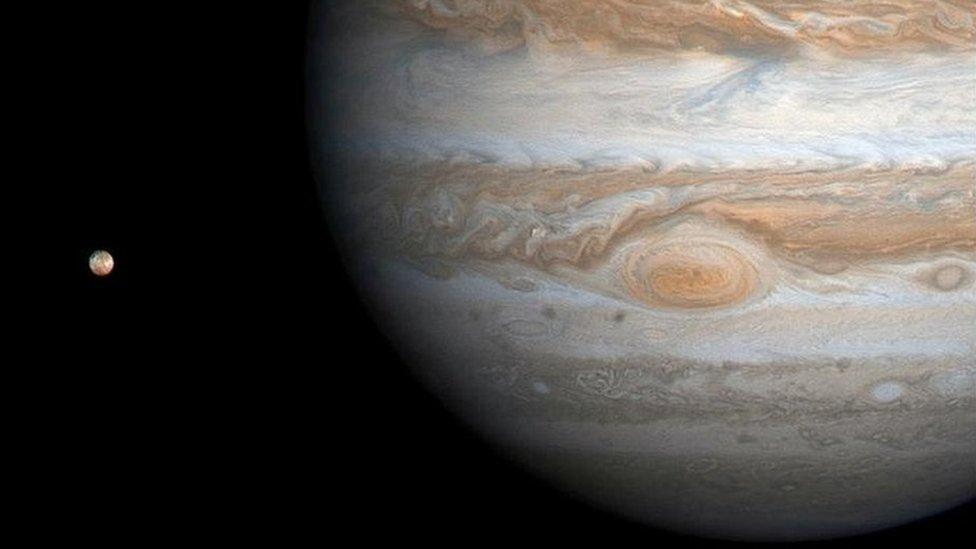James Webb: World's biggest space telescope sends back image of nearby galaxy
- Published
- comments

Two pictures of the same galaxy taken by different space telescopes - Spitzer (on the left) and James Webb (on the right)
Nasa has released one of the first images taken by the James Webb space telescope!
It shows part of a nearby galaxy called the 'Large Magellanic Cloud' that orbits the Milky Way.
To demonstrate just how advanced the new telescope is, its compared it to an image of the same galaxy taken previously by a different telescope - and it's easy to see just how much clearer and more detailed the James Webb picture is!
Nasa says it will release more pictures from the James Webb space telescope in the summer and experts believe the telescope could change the future of astronomy forever!
WATCH: BBC science editor Rebecca Morelle explains how the James Webb Space Telescope will work
Nasa launched the telescope on Christmas Day last year, on its mission to show the first stars to light up the Universe.
Webb, named after one of the main scientists behind the Apollo Moon landings, is the successor to the famous Hubble space telescope.
Last month, the Space Agency announced that the telescope had "fully aligned" - meaning that its mirrors are now aiming light collected from space down into each part of the telescope.
Nasa says that the telescope is now nearly ready for action, and will officially begin studying distant stars later this summer.
Space experts are excited at the thought of what the James Webb telescope might find in the future.
Nasa say that its "significantly larger primary mirror and improved detectors" mean that people will be able to see the sky more clearly, "enabling even more discoveries."
It added that when Webb is ready to begin its observations, it'll give astronomers new insights into the birth of stars and planetary systems.
- Published22 December 2021

- Published20 November 2021

- Published19 November 2021

